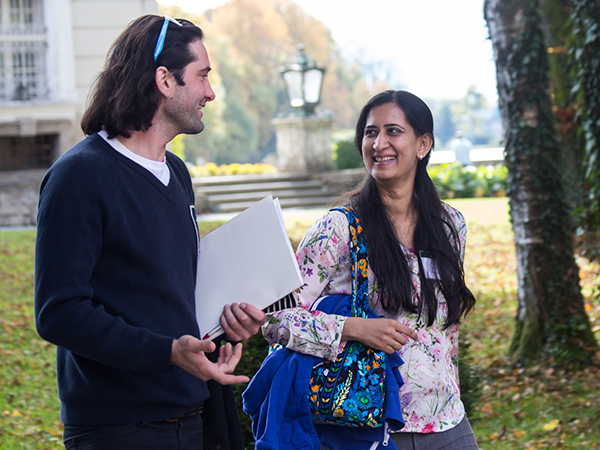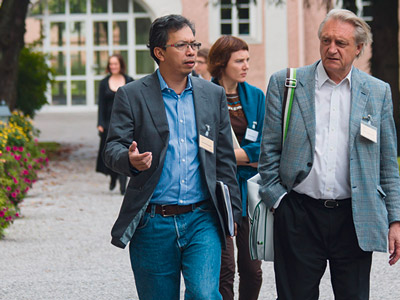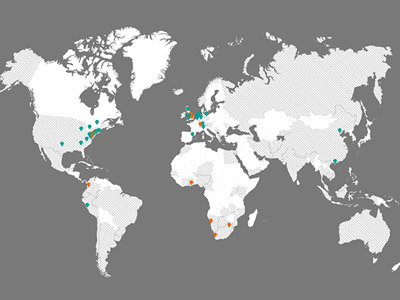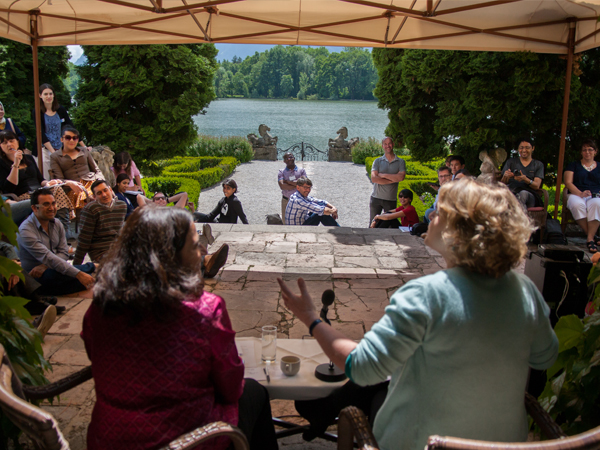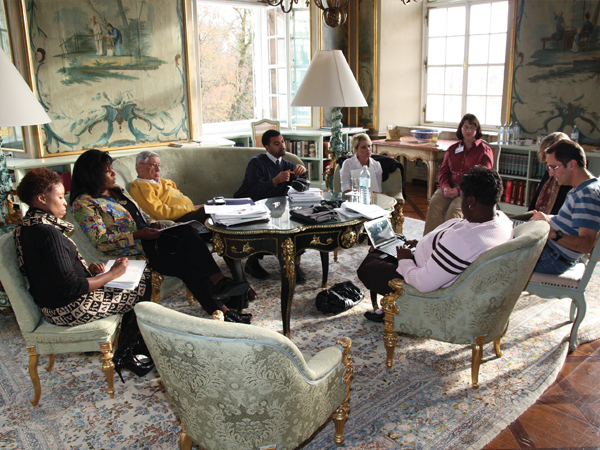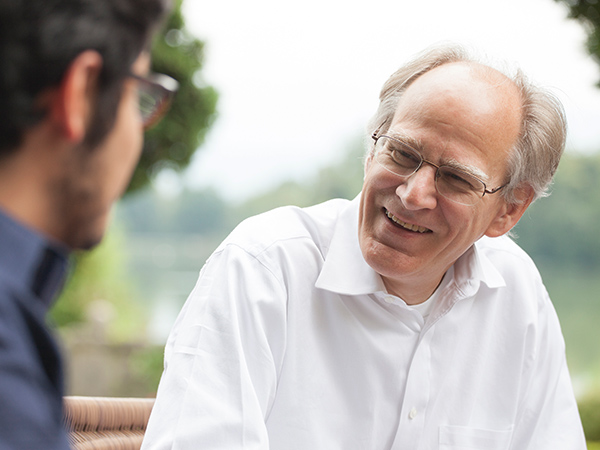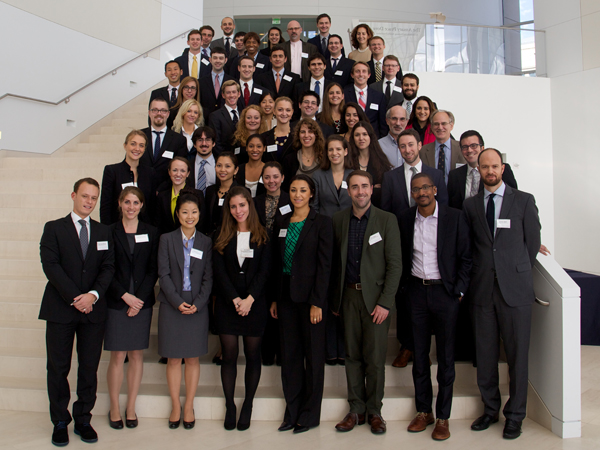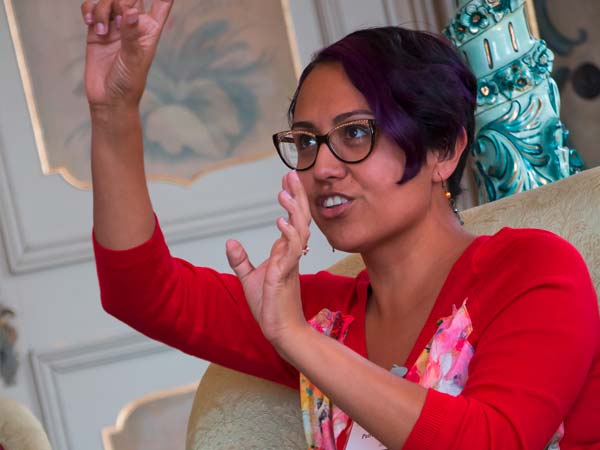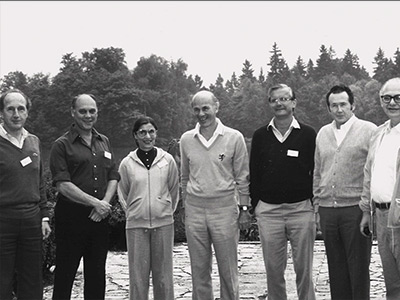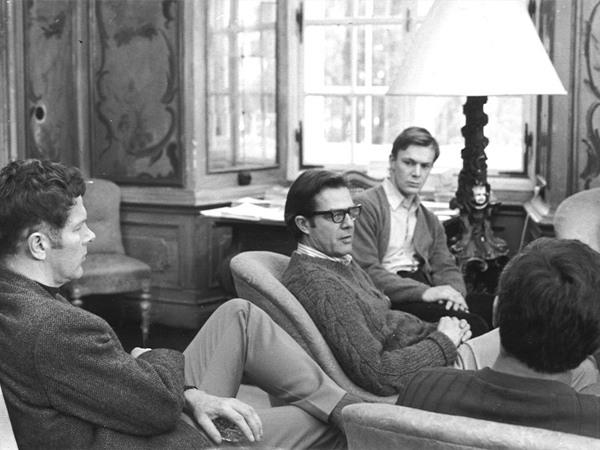Health & Health Care innovation in the 21st Century
The Power of Partnership
Salzburg Global Seminar’s programs would not happen without our partners. Partners provide not only the intellectual capital and input to drive the session forward but often the much needed financial capital necessary to bring Fellows and faculty to Salzburg. But what do partners get out of working with Salzburg Global?
Since the series began in 2010, Salzburg Global Seminar has worked with several partners to deliver programs on Health and Health Care Innovation in the 21st Century. Partnership with Salzburg Global on a session at Schloss Leopoldskron can help these organizations make significant strides in their own agendas, put them in contact with Fellows from across the world whom they would likely not have met otherwise, and – most importantly – discover a sense of complementarity with other organizations, thus being able to go on and form their own partnerships.
For lead partner University Research Co., LLC (URC), the session Making Health Care Better in Low and Middle Income Economies: What Are the Next Steps and How Do We Get There? resulted in the “Salzburg Statement on How to Make Health Care Better in Low and Middle Income Countries,” which they have used in workshops and presented around the world (See BELOW). Leonardo Cubillos, senior health specialist at the World Bank Institute (WBI), declared “Mission accomplished” after Jim Yong Kim, the then-newly appointed head of the World Bank, stated: “We fully embrace the rightsbased approach to healthcare,” at the end of the session Realizing The Right To Health: How Can a Rights-Based Approach Best Contribute to the Strengthening, Sustainability and Equity of Access to Medicines and Health Systems?
Typically, Salzburg Global’s healthrelated programs bring together 60 participants from an average of 23 countries on five continents and include not only practitioners but also health care policy makers, academics, and representatives from government and providers to patient advocacy groups, enabling partners to harvest input, opinions and experience from a broad global spectrum.
But more than this, Salzburg Global’s health care programs enable partners to extend their global network.
“The goal of our partnership with Salzburg Global is to support the development of a science of delivery for health care that meets the needs and wants of people and populations,” explains Al Mulley, director at The Dartmouth Center for Health Care Delivery Science.
PARTNERS DISCOVER A SENSE OF COMPLEMENTARITY WITH OTHER ORGANIZATIONS.
“Since 2010, we’ve convened over 200 faculty and Fellows from more than 30 countries, and in 2012 and 2013, the WBI supported our partnership by co-sponsoring two sessions to explore the relevance of emerging principles of delivery science to rights-based approaches to health care.”
What makes Salzburg Global so distinct can be hard to quantify, but it’s clear to those who partner with the organization again and again.
“Salzburg is not only a beautiful place with a serene setting,” explains Rashad Massoud, senior vice president, Quality & Performance Institute at URC. “The environment is also very conducive to productive thinking and working. Salzburg Global Seminar has developed an amazing convening ability, attracting all the right players and stakeholders.”
SALZBURG IS SOMEWHERE WHERE YOU OPEN UP A DEGREE OF TRUST AND UNDERSTANDING.
“It’s the walk in the woods, the conversation over dinner or on into the evening in the Bierstube,” adds Salzburg Global Program Director John Lotherington, who leads the program series.
“During the five days we spend together we’re building a ‘pop-up community.’ And that’s why people love Salzburg: They feel much more in community with the other people they’re with, however diverse the group, than they do elsewhere.
“Salzburg is somewhere where you open up a degree of trust and understanding of people’s hinterland that you rarely find at other sorts of events, which are usually far larger and/or far shorter.”
As with every session convened by Salzburg Global Seminar, participants find that the somewhat more remote setting of Schloss Leopoldskron, in the Alpine city of Salzburg, helps them remove themselves more from their daily lives and more deeply tackle the issues at hand.
PEOPLE EXAMINE THEIR OWN ASSUMPTIONS AND COME TO A MUCH BETTER UNDERSTANDING OF OTHERS’.
“It’s a retreat,” adds Lotherington. “It’s a place where people can come and examine their assumptions and come to a much better understanding of other people’s assumptions on an individual and an institutional level.” Outside the gates of Schloss Leopoldskron, this “pop-up community” continues with Salzburg Global Fellowship events, such as the typically “Salzburg-esque” session held in Massachusetts General Hospital in Boston that brought together Fellows, including four existing partners – URC, Dartmouth, WBI and the Informed Medical Decisions Foundation – with two other organizations, the Mayo Clinic Center for Health Care Delivery Science and the OpenNotes project, both of which have since gone on to partner with Salzburg Global for future programs at Schloss Leopoldskron.
Lotherington adds: “What we’re doing in Salzburg through the Health and Health Care Innovation Series is subtle and not easily quantifiable… It’s a qualitative change. But that’s why people come back! They understand that it’s going on.”
For further information, please see: health.SalzburgGlobal.org

 HEALTH AND HEALTH CARE INNOVATION FELLOWS’ COUNTRIES OF ORIGIN/OPERATION
HEALTH AND HEALTH CARE INNOVATION FELLOWS’ COUNTRIES OF ORIGIN/OPERATION CONFERENCE PRESENTATIONS / REPORT CITATIONS FOR THE “SALZBURG STATEMENT ON SHARED DECISION MAKING”
CONFERENCE PRESENTATIONS / REPORT CITATIONS FOR THE “SALZBURG STATEMENT ON SHARED DECISION MAKING” CONFERENCE PRESENTATIONS / REPORT CITATIONS FOR THE “SALZBURG STATEMENT ON MAKING HEALTH CARE
BETTER IN LOWER AND MIDDLE INCOME COUNTRIES”
CONFERENCE PRESENTATIONS / REPORT CITATIONS FOR THE “SALZBURG STATEMENT ON MAKING HEALTH CARE
BETTER IN LOWER AND MIDDLE INCOME COUNTRIES”